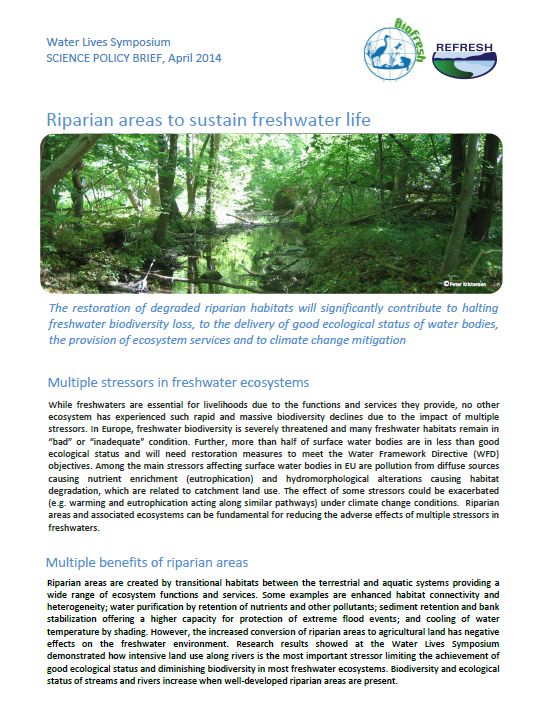Biodiversity of Freshwater Ecosystems: Status, Trends, Pressures, and Conservation Priorities (BioFresh)
- Project
- Research Program
- Duration
-
-
Freshwater biodiversity patterns and the processes that maintain them at European and global scale are poorly understood for most freshwater organisms. The BioFresh FP7 project built a public biodiversity information platform to bring together the vast amount of information on freshwater biodiversity currently scattered among a wide range of databases. This portal allows scientists and planners to evaluate and examine how freshwater biodiversity responds to environmental pressures for more effective conservation planning.
Background
Scientists and water managers have collected a vast amount of data on freshwater organisms, and yet it has rarely been possible to describe the geographic range of an organism. This was because the data are dispersed in many locally-managed databases, many of which are not publically available. Thus, an integrated and accessible dataset is very valuable not only to help to protect and take better advantage of the services provided by aquatic ecosystems, but also to make it possible to establish effective regional plans for conservation.
Main objectives
The overall objective of the FP7 BioFresh project was to improve capacity to protect and manage freshwater biodiversity in the face of ongoing changes to global climate and socioeconomics. This has been achieved by:
- Building a freshwater biodiversity information platform as a gateway to scientific information on freshwater biodiversity,
- Predicting the responses of freshwater biodiversity and its services to multiple stressors at global, European and local scale, including future climate and socioeconomic pressures,
- Increasing the awareness of the urgency for freshwater biodiversity conservation among scientists, policy makers and the public, and thereby improving present conservation strategies and supporting EU policy (e.g. WFD and Habitats Directive) and the aims of international environmental agreements.
Ecologic Institute in BioFresh
BioFresh was organized as three interacting Workblocks and nine integrated Workpackages. WB1 (including WPs 1-3) was the database workblock, WB2 (including WPs 4-6) is, the science workblock, while WB3 (including WPs 7-8) was concerned with policy and outreach activities.
As one of 19 project partners, Ecologic Institute focused its research on current ecosystem services of freshwater biodiversity and how these will be affected by changes of biodiversity in the future (in WP6). Ecologic also contributed to the awareness raising and outreach activities of the project (in WP8). Our activities in this area mainly focused on an effective science-policy dialogue, by developing suitable strategies for communication with policy-relevant stakeholders and by producing dissemination material that distilled the key project outcomes and conclusions for different policy fields (e.g. biodiversity policy, water policy, agricultural policy).
This project was part of the Ecologic Institute's contribution to the International Year of Biodiversity 2010.






